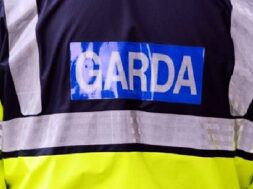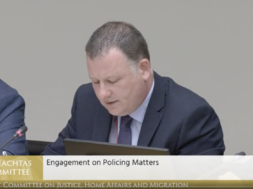Seanad Debate: The need for the Minister for Justice and Equality to have notifications of speeding fines sent by registered post to offenders
Adjournment Debate 10 June 2014
Seanad Éireann
The need for the Minister for Justice and Equality to have notifications
of speeding fines sent by registered post to offenders
– Senator John Kelly
Reply by Minister of State Sean Sherlock on behalf of the Minister for Justice and Equality, Frances Fitzgerald TD
I wish to thank the Senator for raising this matter on the adjournment. I am speaking on behalf of the Minister for Justice and Equality, who unfortunately is unable to be present due to other business.
The Senator will be aware that road traffic legislation is the responsibility of the Minister for Transport, Tourism and Sport, and that the Road Traffic Act, 2002, introduced a system of fixed charges and penalty points for specific traffic offences, including speeding.
When a relevant offence is detected, the registered owner of the vehicle involved receives a fixed charge notice. The address to which the fixed charge notice is posted to is either, the one supplied by the driver when intercepted by An Garda Síochána or the address listed on the Department of Transport, Tourism and Sport’s National Vehicle and Driver File (NVDF).
The Minister has been informed by the Garda authorities, who are responsible for enforcement of the legislation, that ordinary post is utilised to serve fixed charge notices, in accordance with section 25 of the Interpretation Act 2005. This provides that service of a document may be effected by post and that such service is deemed to have been effected at the time at which a letter would ordinarily have been delivered, unless the contrary is proved. The Minister is also advised that road traffic legislation provides that, in a prosecution relating to an unpaid fixed charge notice, it shall be presumed that the relevant fixed charge notice has been served or caused to be served and that a payment pursuant to the relevant notice has not been made, unless the contrary is shown.
Insofar as the use of registered post is concerned, the Minister will convey the Senator’s views on this matter to the Garda authorities and to the Minister for Transport. However, the Minister would note that use of registered post would not overcome objections that notices were received by persons other than those for whom they were intended, or that persons would seek to avoid service by declining to accept such registered notices. There would also be logistical and cost implications associated with issuing what could be more than 400,000 registered letters annually, in circumstances where a majority of persons receive and pay the fixed charge notices under current arrangements with no difficulties.
The Senator will also be aware that Section 44 of the Road Traffic Act, 2010, will introduce what is commonly referred to as a ‘3rd Payment Option’ into the fixed charge system. Under this mechanism a person, who is summonsed to court for a fixed charge offence, will have a final option to pay a fixed charge not later than 7 days before the Court date on which the charge is to be heard. This will provide an alternative to a court appearance in circumstances where the person states they did not receive the first two notices. There are substantial technical and administrative arrangements required to bring this section into effect. However, the Minister is advised by the Garda authorities that an outline implementation plan is being prepared and will be considered as part of the work of the Criminal Justice (Fixed Charge Processing System) Working Group, which is overseeing the implementation of the recommendations of the Garda Inspectorate Report on the Fixed Charge system.
On behalf of the Minister, I would like to thank the Senator again for raising this issue and will of course communicate the points made in today’s debate.









